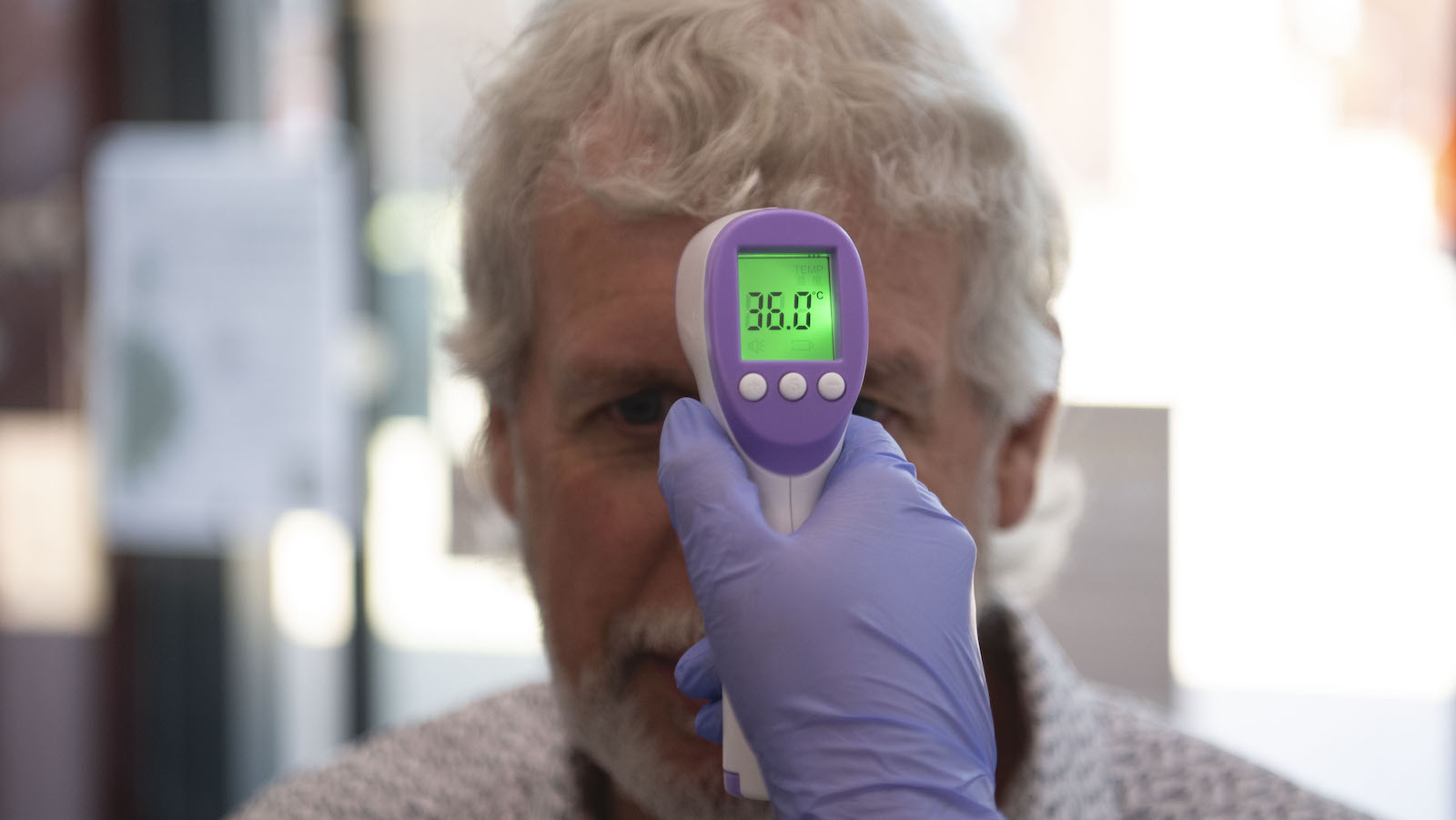Are there hidden consequences generated by covid-19?
1:49
(CNN Spanish) –
Some people with coronavirus have symptoms of the disease that can persist for days, weeks or even months.
This is known as prolonged covid.
What are the symptoms?
And how do you know if you have it?
Dr. Elmer Huerta clarifies some of these doubts in this episode and explains in detail what the condition is about.
You can listen to this episode on Spotify or your favorite podcast
platform
, or read the transcript below.
Hello, I am Dr. Elmer Huerta and this is your dose of information about the new coronavirus, information that we hope will be useful to take care of your health and that of your family.
In today's episode we will see what is known about the so-called long-covid or prolonged covid, a condition that, like many others in the history of medicine, struggles to be recognized by health professionals.
advertising
The beginnings of the pandemic
Let us remember that, at the beginning of the pandemic in the Western world, during the year 2020, the images we had were of an acute disease, which caused severe cases of complications, mainly respiratory.
So deep did this perception become that the disease was initially baptized as “Wuhan pneumonia”.
Little by little, and during the first year of the pandemic, it began to be recognized - as we described in previous episodes of this podcast - that the new coronavirus was capable of attacking other organs, in addition to the lungs.
In this sense, episodes of severe acute infections began to be described in the medical literature in:
the heart,
brain,
the kidneys,
the pancreas
and the skin, among other organs.
Complications that obviously caused serious harm in patients admitted to hospitals and intensive care units.
The aftermath of covid-19
As a logical observation, it was shown that many patients who were discharged from hospital or intensive care units did not fully recover and were left with sequelae, which --it was thought-- were consequences of the severity of their infections.
Then the concept of covid-19 aftermath appeared.
Little by little – and already in the second half of 2020, but especially during 2021 – doctors from all over the world began to receive patients who complained of various types of symptoms after having had an episode of mild covid-19 or moderate that did not require hospitalization.
It is at this time that the term long-covid or covid-prolonged begins to be heard in medical circles and in the media, and a bitter controversy begins between thousands of patients and their advocates, and part of the medical establishment.
Why is prolonged covid causing controversy?
The controversy --present to this day-- arises because most of the symptoms of prolonged covid are subjective and recurrent over time, and include, among the main ones:
head and body ache,
throat pain,
airway congestion,
concentration difficulty,
frequent forgetfulness,
constant fatigue and
fatigue after minor efforts.
Being subjective, the symptoms that are suffered and expressed by patients are difficult or impossible to prove with auxiliary tests by doctors.
That quality has meant that -- aggravated by the relative lack of medical services caused by the pandemic -- patients suffer a lot looking for doctors who believe their symptoms are real.
Many doctors, who were convinced that covid-19 was a disease like the flu and that it would disappear completely, argued that their patients' symptoms were emotional, explained by chronic anxiety and depression caused by the pandemic.
This situation of suffering from conditions that are difficult to prove objectively is not new.
Patients with fibromyalgia or chronic fatigue syndrome continue to this day to suffer greatly due to the impossibility of obtaining a medical examination for their illnesses.
How patients deal with the disease
As proof that many times it is the patients themselves who have to take the initiative to face their ills, in April 2020 a group of patients --without further scientific training-- from the organization Body Politic conducted an online survey that managed to for the first time collecting data from 640 people affected by persistent symptoms after passing covid-19.
The study, published on May 11, 2020, determined 10 common persistent symptoms in affected people:
mild shortness of breath,
mild chest tightness
mild to moderate fatigue,
chills or sweats
minor body aches,
dry cough,
mild fever (98.8-100 Fahrenheit or 37.1-37.7 Centigrade),
mild headache
and brain fog or concentration problems.
Subsequently, a very important study on the subject was published on April 1, 2021 by the UK Office for National Statistics which showed that more than a million British citizens were suffering from persistent symptoms after having passed covid-19.
The report also noted that around 674,000 people said their symptoms had had a negative impact on their ability to carry out daily activities.
This was more frequent in people aged 35 to 69, women and residents of the poorest areas of the country.
The US initiative
After a wide dissemination of both studies in the media, in September 2020, the Body Politic survey was duly recognized in its usefulness by Dr. Francis Collins, director of the United States National Institutes of Health, who Finally, in February 2021, it launched a national initiative to study persistent covid with a budget item of 1.15 billion dollars.
Currently, thousands of people with persistent covid are crowding hospital outpatient clinics, which cannot cope with them.
It is estimated that the persistent covid caseload will add to the enormous caseload of chronic diseases that were neglected during the pandemic, creating enormous pressure on health systems.
Without a doubt, millions of people are waiting for the studies sponsored by the National Institutes of Health of the United States, announced in February 2021.
In the meantime, if any of you, our listeners, have persistent symptoms after having passed covid-19, we recommend that you seek a doctor specialized in internal medicine or infectious diseases so that you can do an adequate treatment and follow-up of your case.
Do you have questions about covid-19?
Send me your questions on Twitter, we'll try to answer them in our next episodes.
You can find me at @Drhuerta.
If you find this
podcast
useful, be sure to subscribe to get the latest episode on your account and help others find it by rating and reviewing it on your
favorite
podcast app.
And for the most up-to-date information, you can always head to CNNEspanol.com.
Thanks for your attention.
coronavirusCovid-19


/cloudfront-eu-central-1.images.arcpublishing.com/prisa/FIXCFAVRNRAJXLD4RKU4LAVU4U.jpg)


